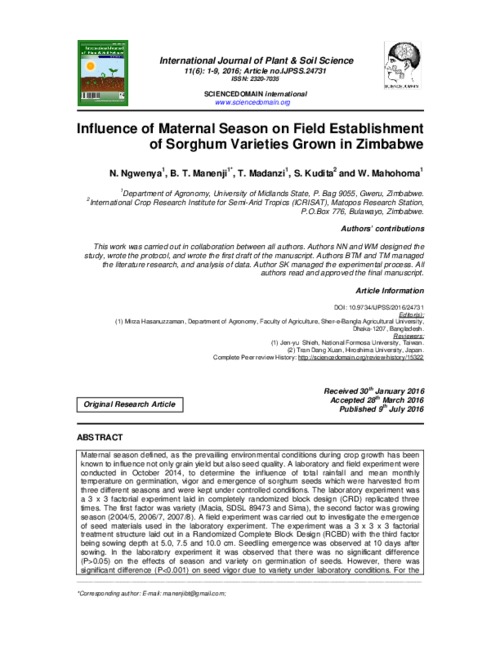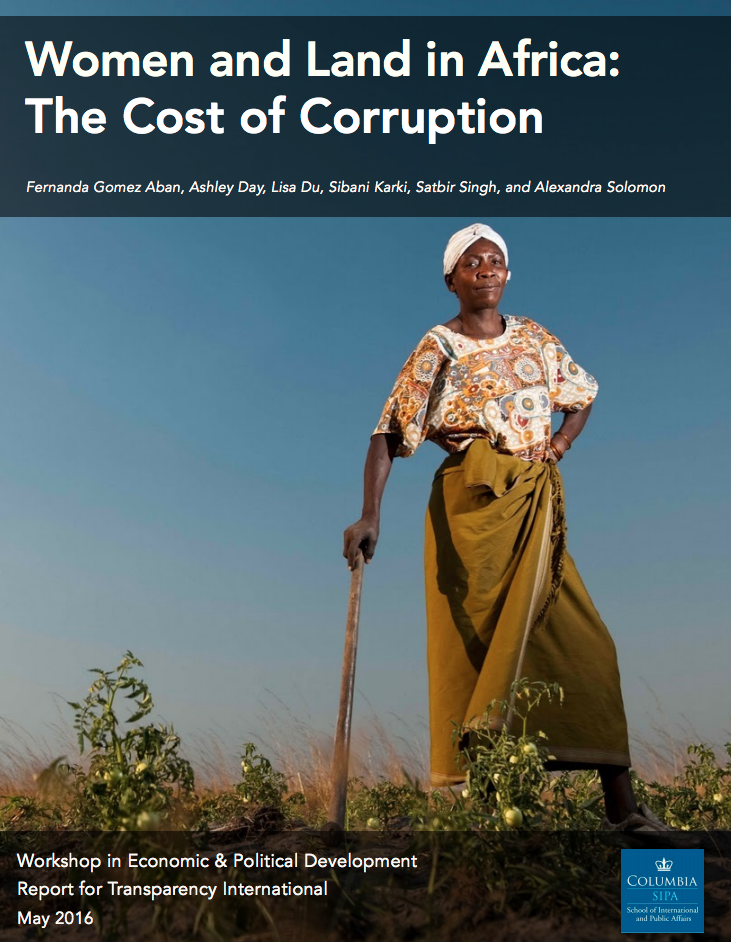Cette édition de la Revue Nature & Faune est un numéro spécial pour marquer 2015 comme l’ Année internationale des sols. Elle comporte trente articles concis qui abordent le thème central suivant: «La gestion durable des sols: clé pour la sécurité alimentaire et la nutrition en Afrique…
The publication contains the 2016-2020 Country Programming Framework which maps out priority areas to guide the Food and Agriculture Organization of the United Nations’ collaborative efforts and support to the Government of Zimbabwe in the areas of food and nutrition, agriculture, natural…
African agrifood systems are being transformed by multinational capital. To date, research on this transformation has focused most intently on the rise of supermarkets and demand for African land. Multinational investment in African grain trading has received less attention. Using a range of…
L’Évaluation des ressources forestières mondiales 2015 est le fruit d’un effort collectif des pays, ayant impliqué quelque 300 correspondants nationaux, la FAO et ses partenaires. Mis en oeuvre par six partenaires dans le cadre de divers processus, le Questionnaire concerté sur les ressources…
This report uses data from a two-year impact evaluation to analyse the impact of the Ethiopia Social Cash Transfer Pilot Programme (SCTPP) on household behaviour and decision-making, including agricultural production and other income-generating activities, labour supply, the accumulation of…
Ce livre nous emmène au cœur des zones de forêts denses et sahéliennes de l’Afrique centrale, un écosystème précieux et essentiel à la vie quotidienne de ses habitants, représentant l’un des trois principaux ensembles boisés tropicaux de la planète. Dix pays (Burundi, Cameroun, Congo, Gabon,…
This publication aims to provide simple and clear and practical information about the Regional Initiative on Building resilience in Africa's drylands and raise awareness among stakeholders of the Initiative
Soil loss is a major threat to the agricultural development in Malawi and by extension is also a major hindrance to the overall economic development of the country since the Malawian economy is dependent on agriculture. Not only does soil loss reduce the cultivable soil depth but it also takes…
To raise awarenesss among focus countries, partners and other target audience about the regional initiative and its relevance to the Organization's strategic objectives.
Maternal season defined, as the prevailing environmental conditions during crop growth has been
known to influence not only grain yield but also seed quality. A laboratory and field experiment were
conducted in October 2014, to determine the influence of total rainfall and mean…
This publication responds to calls in regional and global forestry forums to strengthen capacity for effectively developing and implementing payment schemes for environmental services in sub-Saharan Africa. In particular, the African Forestry and Wildlife Commission, at its 18th session, called…
This report sits at the intersection of gender, land administration and corruption – an important issue area that is largely under-researched. Women’s rights to access, control and own land are consistently challenged and restricted by the gendered nature of corruption in the land sector, which…


